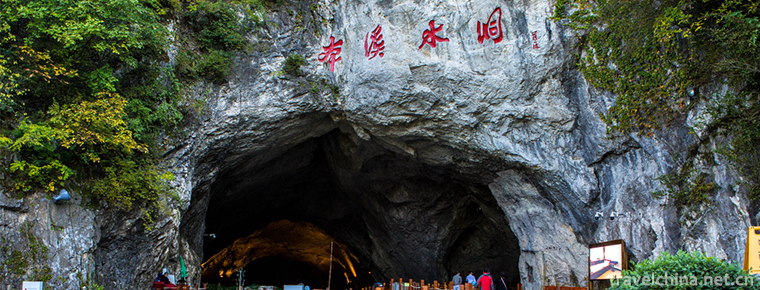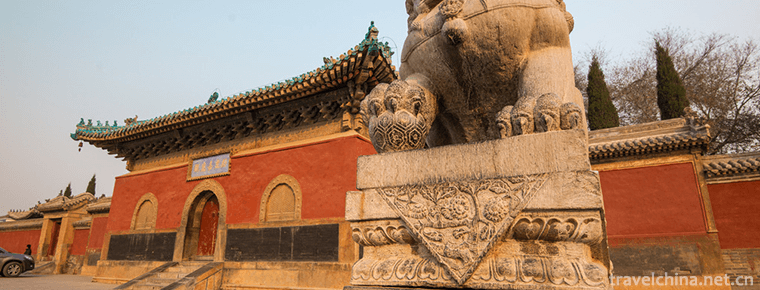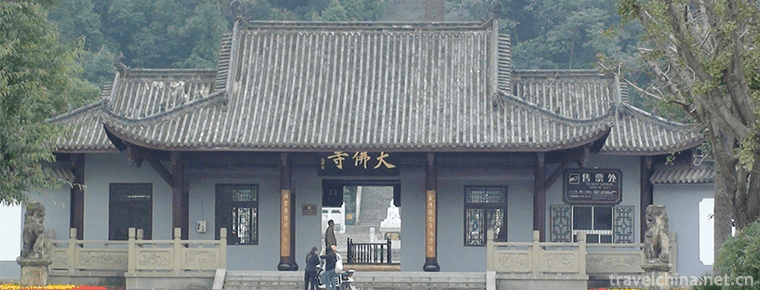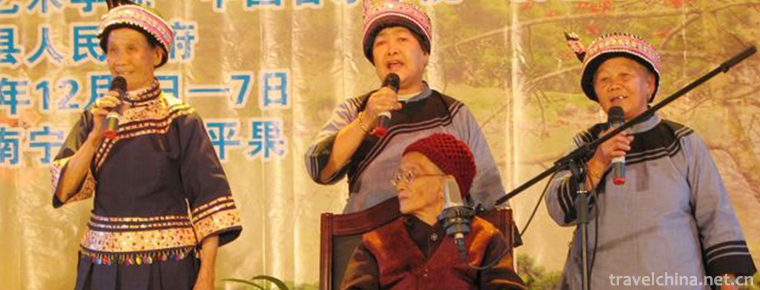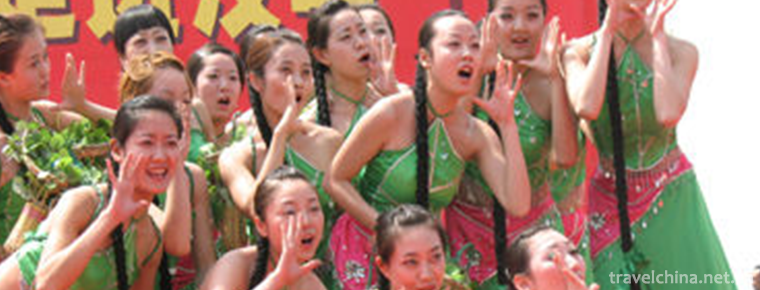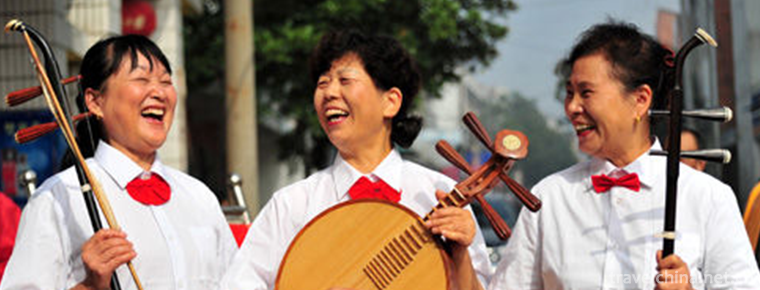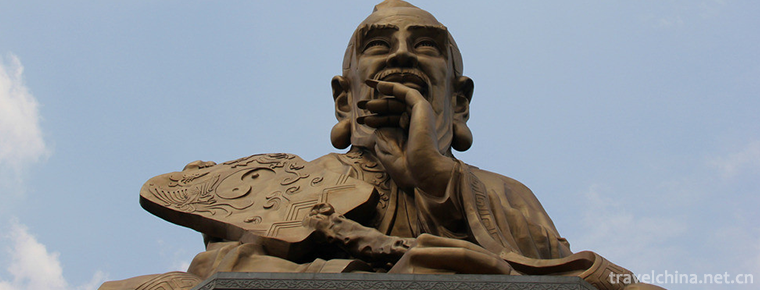Beijing Jiaotong University
Beijing Jiaotong University
Beijing Jiaotong University is a national key university directly under the Ministry of Education, jointly constructed by the Ministry of Education, the Ministry of Transport, the Beijing Municipal People's Government and China National Railway Group Co., Ltd. The "211 Project" and the "985 Project Advantage Discipline Innovation Platform" project are the first batch of universities and postgraduate schools in China to award high doctoral and master's degrees. School. School-led "Plan 2011" and "Rail Transit Safety Collaborative Innovation Center" are one of the first 14 identified collaborative innovation centers in China. In 2017, the school formally entered the ranks of national "double first-class" construction, focusing on the dominant and characteristic disciplines, focusing on the construction of "intelligent transportation" world-class disciplines.
As one of the three sources of Jiaotong University, Beijing Jiaotong University can be traced back to 1896. Its predecessor was the Beijing Railway Management Seminar Institute founded by the Qing Government. It was the first university specializing in training managerial talents in China and the birthplace of railway management and Telecommunications education in modern China. In 1917, it was reorganized into Beijing Railway Management School and Beijing Post and Telecommunications School. In 1921, it merged with Shanghai Industrial School and Tangshan Industrial School to form Jiaotong University. After the reorganization of Jiaotong University in 1923, Beijing Branch was renamed Beijing Jiaotong University. In 1950, the school was named Northern Jiaotong University. Chairman Mao Zedong wrote the name of the school. Mao Yisheng, a famous bridge expert, was promoted to president. In 1952, Northern Jiaotong University was abolished and renamed Beijing Railway College. The name of Northern Jiaotong University was restored in 1970. In 2000, it was merged with Beijing Electric Power College and transferred from the Ministry of Railways to the Ministry of Education. In 2003, the name of Beijing Jiaotong University was resumed. The school has trained Liu Han, the founder of China's first radio station, Ying Shangcai, the designer of China's first high-powered steam engine, Jin Shixuan, Xu Jing, the founder of China's railway transport economics, Yang Rumei, one of the earliest four accountants in China, and modern Chinese writers and writers. Zheng Zhenduo, a scholarly critic and literary historian, and a large number of outstanding talents are well known both at home and abroad. Xiang Zhejun, the chief prosecutor of the Tokyo Trial, and Ma Yinjun, a famous economist and demographer in China, have taught in schools.
The school has always been aiming at the frontier of scientific and Technological Development and the major strategic needs of the country, relying on the advantages of information, management and transportation science and technology, and through intellectual support, personnel support and professional services, it has participated in railway speed-up, Qinghai-Tibet Railway construction, Daqin Railway heavy-haul transportation, high-speed railway construction and urban rail construction in an all-round way. Major historical events of China's rail transit development, such as independent research and development of road transportation core technology, have achieved a series of original and significant achievements with fully independent intellectual property rights and at an advanced international level, which have accumulated a lot for serving the national transportation, logistics, information, new energy and other industries, as well as the economic and social development of Beijing. Extreme contribution has become an important force to support and lead national, industrial and regional scientific and technological innovation and development. In recent years, great breakthroughs have been made in school science and technology innovation. The development and successful application of CBTC metro operation control system has made China the fourth country to master the technology and realize autonomous control. FAO fully automatic driverless train control system has reached the highest international level of automation of urban rail transit train operation. Under the environment, the key technology of high-speed railway CWR is the most outstanding improvement and innovation of track structure in the past hundred years; "Marking Network System and Key Technologies" and "Intelligent Cooperative Network" improve the independent innovation ability and core competitiveness of the next generation of Internet industry in China; "Behavior-based spatial and temporal distribution of urban traffic flow The numerical calculation has important guiding significance for establishing the theoretical system of modern traffic science; "Key technologies of interoperability and reliable application of train control system of high-speed railway under complex road network conditions" has provided guarantee for the design, development, testing and application of train control system of high-speed railway in China; "Wind-resistant and disaster-proof theory of large roof and enclosure system" The key technology "overcomes the difficult problem of wind resistance of large roof and its envelope system, and the proposed formula of wind load fills the gap at home and abroad, and is included in the national standard. At present, the school is comprehensively promoting the implementation of the 13th Five-Year Plan and the tasks of the Comprehensive Reform Plan, adhering to the "three-step" strategy, and by the middle of this century, the capital construction will become a world-class university with distinctive characteristics.
The school has two East-West campuses in Haidian District, Beijing, which is known as the "school resort", with a total area of nearly 1000 mu and a building area of more than 1 million square meters. In September 2015, Weihai Campus, located in Weihai City, Shandong Province, was put into use. Each campus of the school has perfect teaching and scientific research facilities and beautiful campus environment.
After the development of Shuangjiazi, the school has formed a complete discipline training system with the advantages of information, management and other disciplines, with the characteristics of transportation science and technology, and with the coordinated development of industry, management, economics, science, literature, law, philosophy and other disciplines. The school has the College of Electronic Information Engineering, the College of Computer and Information Technology, the College of Economics and Management, the College of Transportation, the College of Civil Engineering, the College of Mechanical and Electronic Control Engineering, the College of Electrical Engineering, the College of Science, the College of Language and Communication, the College of Software, the College of Marxism, the College of Architecture and Art. There are 14 colleges such as Law School, State Secret College, Postgraduate School and College of Distance and Continuing Education, and an independent college, the Coastal College of Beijing Jiaotong University, established in Huanghua City, Hebei Province in cooperation with enterprises.
The school has steadily improved in the rankings of the four world universities, and has entered 500 + in the rankings of U.S. News World University and Shanghai Soft Science World University. The most influential disciplines in the world university rankings are all disciplines. Engineering and Technology, Computer Science, Business and Economics, Physics and other four disciplines are included in THE World University Discipline Ranking, Electrical and Electronic Engineering, Computer Science and Information System, Machinery, Aviation and Manufacturing Engineering, Material Science, Mathematics, etc. Physics and Astronomy, Business and Management Research, Statistics and Operational Research and other eight disciplines have entered the top disciplines of QS in the world. Transportation Engineering ranks first among the top disciplines of Shanghai Soft Science in the world. Engineering is close to the top 1 of ESI. Engineering, Computer Science and Material Science are among the top 3 of ESI. Systems science has ranked first in the national discipline evaluation four times in a row; five disciplines, such as system science, transportation engineering, information and communication engineering, computer science and technology, and business administration, have entered the top 10% (category A) of the fourth round of discipline evaluation; applied economics, civil engineering, statistics and Marxism. Theories, mechanical engineering, management science and engineering, software engineering and other seven disciplines entered the first 20% (B + category) of the fourth round of discipline evaluation in China. The school has two first-level national key disciplines, transportation engineering, information and communication engineering, industrial economics, bridge and tunnel engineering, and two second-level national key disciplines, including eight second-level national key disciplines covered by the first-level disciplines, 15 post-doctoral research mobile stations, and a first-level discipline broader. There are 21 bachelor's degrees and 33 master's degrees in first-level disciplines. There are 14 kinds of professional degrees, such as Doctor of Engineering, MBA, Master of Engineering, Master of Accounting and Master of Law.
The school regards the construction of high-quality teachers as the key to improve the strength of running a school and vigorously implements the strategy of strengthening the school by talents. There are 2972 on-the-job faculty members, including 1877 full-time faculty members (1286 with associate senior and above professional and technical titles, 1774 with master's degree or above). The school has four academicians of the Chinese Academy of Sciences, nine academicians of the Chinese Academy of Engineering, five national-level teaching faculties, six members of the discipline evaluation team of the Academic Degree Committee of the State Council, 13 experts of the National "Ten Thousand People Plan", six specially appointed professors of the Yangtze River Scholars, one lecture professor, three young scholars, and 11 national-level candidates of the Ten Millions of Talent Engineering. There are 12 recipients of the National Outstanding Youth Fund, 17 recipients of the Outstanding Youth Fund and 156 experts enjoying special government allowances.
Schools always regard talent training as the fundamental task of running schools. Quality education has achieved remarkable results, and has delivered a large number of talents to the country. In 1997 and 2006, the school participated in the National Undergraduate Teaching Level Evaluation and achieved excellent results. There are 15534 undergraduates, 2861 doctoral students, 8169 master students, 1580 part-time master students, 2182 in-service professional degree graduates, 6249 adult students and 2217 foreign students in the whole year. In the past three undergraduate teaching achievement awards, two first-class awards and nine second-class awards were awarded. In the past three awards of the Graduate Education Achievement Award of the Chinese Academy of Degree and Graduate Education, one first prize and two second prizes were awarded. In the past five years, the school has added one famous teacher of the National Ten Thousands Plan, 10 famous teachers of Beijing and 4 famous young teachers of Beijing. The school has 11 national characteristic majors, 7 pilot national comprehensive reform majors, 8 national outstanding engineer education and training program majors, 11 majors have passed the national engineering education professional certification, and 2 majors have passed the national civil engineering professional evaluation. The school has six national experimental teaching demonstration centers, three national virtual simulation experimental teaching centers, two national virtual simulation experimental teaching projects, three national college students'off-campus practice bases, seven national engineering practice education centers, and a national teacher teaching development demonstration center. The school has been awarded 8 national quality online open courses, 19 national quality resource sharing courses and 6 national quality video open courses; 34 national planning textbooks for undergraduates of general higher education in the 12th Five-Year Plan have been approved, 42 books have been awarded, 50 top universities in China have been awarded, and the national university students have been awarded innovation and entrepreneurship education. Advanced units in the implementation of training programs and "National Base for Practical Education, Innovation and Entrepreneurship in Universities". The training of top innovative talents has been strengthened through the establishment of a variety of training modes, such as science experimental class (Siyuan class), basic subject pilot class (knowledge and practice class), Benshu (Bo) continuous reading class, Zhan Tianyou class, Mao Yi promotion class, international class and so on. The quality of students and the level of training have been improved year by year. The employment rate of undergraduates and postgraduates has stabilized at over 98% and the rate of Undergraduates'further education has exceeded 55%. The school has been appraised by the Ministry of Education as the first batch of national universities with typical experience of innovation and entrepreneurship and the model universities of innovation and entrepreneurship education reform in Beijing. The Student Art Troupe has made outstanding achievements in all previous art exhibition competitions of university students in China and the capital. It has won the first prize of instrumental music group in the first, second, third, fourth and fifth national art exhibition of university students and many first prizes in Beijing. It has also made many cultural exchange performances overseas. The college students'edition of Long March Group Song rehearsed by the school students' art troupe has aroused strong social repercussions. The original drama Mao Yisheng was successfully selected as the "propaganda project of the backbone of the republic-famous science master school", and performed many times inside and outside the school, winning wide acclaim from all walks of life. School physical education is developing vigorously, high-level sports teams and ordinary student teams have achieved remarkable results. By the end of 2018, they have won 133 Championships in various competitions at the national level and above, including 87 badminton, 19 Taekwondo, 17 track and field events, 1 men's volleyball, 1 shooting, 2 Baseball and softball, 1 bridge and 4 dance teams. Item.
The school regards strengthening scientific and technological innovation as the strategic focus of development, and constantly improves the ability of social service. The school has 61 research platforms at or above the provincial and ministerial level, including one national key laboratory, one national engineering research center, six national engineering laboratories (five of them participated), one rail transit safety Collaborative Innovation Center (lead), one national energy research and development center, two national international science and technology cooperation bases, and two national cooperation bases. Four accredited laboratories, one National University Science Park, nine Key Laboratories/Engineering Research Centers of the Ministry of Education, two Beijing Laboratories, 17 Beijing Key Laboratories/Engineering Research Centers, one first batch of high-end think tanks in the capital, and four Beijing Philosophy and Social Science Research Bases. Beijing has established a new era of China in Xi Jinping, Beijing. The Research Base of Beijing Jiaotong University, the Research Center of Sexual Socialism Thought, as well as two key laboratories of transportation industry, and eight research platforms at provincial and ministerial levels. In the past five years, the school has undertaken more than 10,000 projects of the original "973" plan, the "863" plan, the national key R&D projects (projects), the major projects of the National Social Science Foundation, the National Natural Science Foundation projects and various scientific research projects of relevant ministries and commissions, with a research fund of 3.8 billion yuan. Published 4942 SCIE search papers, 7516 EI search papers and 2627 ISTP search papers. 2743 patents were applied for and 1418 patents were authorized. Establishing the academic exchange brand "China Transport High-level Forum" and "Jiaotong University Hall", hosting and hosting more than 60 high-level international academic conferences. It has won 10 national awards and 155 provincial and ministerial awards for science and technology, including one first prize of the National Science and Technology Progress Award, two second prizes of the National Science and Technology Progress Award and two second prizes of the National Technology Invention Award. Four achievements in Humanities and social sciences were awarded the Outstanding Achievement Award of Scientific Research in Colleges and Universities (Humanities and Social Sciences). It has assets of 1.29 billion yuan in teaching and scientific research instruments and equipment, and a total of 11.89 million copies of paper books, electronic books and network resources in the library. It has a database with transportation characteristics.
The school regards strengthening cooperation and exchange as an important way to improve the level of running a school, and its influence at home and abroad is constantly improving. It has established cooperative relations with 253 universities and famous multinational enterprises in 45 countries such as the United States, Britain, Germany and France. There are four Confucius Institutes in Luwen, Belgium, Houston, Campinas, Brazil and Warsaw, Poland, which actively disseminate Chinese culture. The school's participation in the International Railway Cooperation Organization (OSJD) has enhanced its influence and voice in the field of international railways, and the China-Central and Eastern European Union of Universities has laid a foundation for expanding educational cooperation and exchanges with Central and Eastern European countries. The school has 1 state-level demonstration schools, 6 disciplines innovation intelligence base (111 bases), 1 "111 bases" training projects, 1 teaching projects in the "one belt and one road", 31 experts in the high-end foreign experts projects, 5 Sino foreign cooperation projects, and 3 foreign funded institutions. Postgraduate degree education to improve the international level of running schools. Give full play to the role of alumni associations, foundations and boards of directors, deepen the collaborative innovation of "government, industry, education and research". Fifty-one local alumni associations have been established at home and abroad, 83 directors have been recruited. Strategic cooperative relations have been established with enterprises in transportation, logistics, information and energy industries and local governments, and cooperation in personnel training and scientific research has been established. We will carry out long-term and extensive cooperation in these fields.
"Drinking water to think of the source, patriotic Rong school". Today, with 122 years of glorious history, Beijing Jiaotong University, adhering to the motto of "knowing and doing" and shouldering a new mission, is striding towards the goal of world-class universities with distinctive features in a more pioneering spirit.







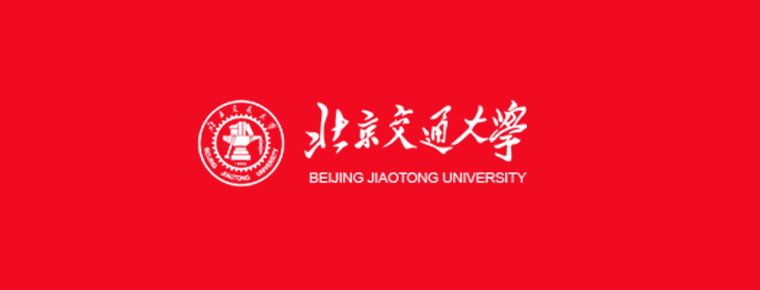
-
Canton Tower
Located in Guangzhou Haizhu District (Yizhou Island) near the Chigang Tower,.
Views: 161 Time 2018-10-12 -
Benxi Water Tunnel Scenic Area
Benxi Water Cave, National AAAAA Class Tourist Scenic Spot, National Key Scenic Spot and Asian Member Unit of International Tourist Cave Association.
Views: 191 Time 2018-12-04 -
Qingyuan Mountain Scenic Area
Qingyuan Mountain National Key Scenic Spot is located in the southeast of Fujian Province, and on the Northeast Bank of the lower Jinjiang River.
Views: 147 Time 2018-12-08 -
Wucai Beach
The Wucai Beach is located in Buerjin County, Altay area, north end of Xinjiang. It is located on the first and second terraces on the North Bank of Ertiz River, the only one injected into the Arctic .
Views: 101 Time 2018-12-22 -
Jiaying Scenic Spot
Jiayingguan, commonly known as the Longwang Temple of the Yellow River, is located in Jiayingguan Township, Wuzhong County, Jiaozuo City, Henan Province, China.
Views: 119 Time 2019-01-21 -
Big Buddha Cultural Tourist Area in Zigong Rong County
The Dafo Cultural Tourist Area of Zigong Rong County was opened to the outside world in 1982. It covers an area of 32,470 square meters and has a building area of 3,403 square meters. There are a wide.
Views: 199 Time 2019-03-22 -
72 Sorcery Music of Lingyun Zhuang Nationality
The 72 witchcraft tunes of Lingyun Zhuang nationality originated in Lingyun County, Guangxi, mainly centered on Sicheng Town, where the county government is located. It is a tune sung by the Zhuang wi.
Views: 182 Time 2019-05-13 -
Pucheng Folk Song
Shaanxi folk song is the continuous interaction, integration, creation, development and transmission of various artistic forms among the working people in the production practice and social practice o.
Views: 153 Time 2019-06-09 -
Silk Bamboo in Yichang
Yichang silk bamboo, also known as "fine music", is the representative genre of folk instrumental music art in Yichang. It is mainly popular in Yaqueling and Longquan of Yiling District, and.
Views: 139 Time 2019-07-12 -
Lao Tzu
Laozi, surnamed Li Minger, is a character of Bai Yang, or posthumous Bo Yang. In the late spring and Autumn period, the birth and death years were unknown. About 571 years ago, it was born in the late.
Views: 194 Time 2019-09-04 -
The social background of Cheongsam
Many scholars and media at that time believed that it was an important reason that women imitated men to wear long gowns in order to seek independence of mind and emancipation of women's rights in the early Republic of China..
Views: 316 Time 2020-12-11 -
Geographical environment of Leshan
Leshan City is located in the central part of Sichuan Province and the southwest of Sichuan Basin. Its geographical coordinates are 102 ° 50 ′ - 104 ° 30 ′ E and 28 ° 25 ′ - 30 ° 20 ′ n. It is 214.4 km long from north to South and 164.0 km wide from east to.
Views: 188 Time 2020-12-17

